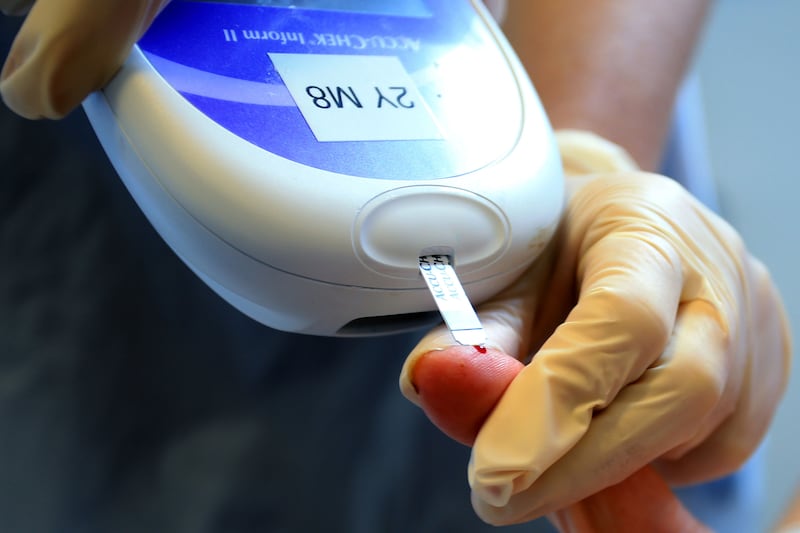MANY people fear the complications of diabetes and losing a limb can be particularly stark consequence of poor management of the condition.
Fortunately, a lot can be done to avoid this happening and, if problems do occur, prompt specialist care can have a dramatic effect on the outcome.
The science behind why diabetes causes foot problems related to two main areas: nerve damage (known as neuropathy) can reduce the feeling in the feet so, if a problem occurs, the pain warning signs can be absent; and poor circulation can reduce the vital flow of blood that is essential to bring healing to a damaged area.
So what can we do to prevent this happening?
Good control of blood sugar levels over years of having diabetes protects vital nerve function. Circulation damage is greater in those who smoke, have high cholesterol or whose diabetes is poorly controlled.
Many of these factors can be controlled through a healthy lifestyle, preventative treatments and regular check-ups. It is essential that an annual foot check is carried out to assess nerve and blood supply to the feet and to know if you are at risk of problems.
One third of those with diabetes are assessed as at moderate to high risk and this is important to be aware of.
Self-care involves regularly inspecting your feet, good nail care and ensuring well fitted socks and shoes. At this time of the year, foot care while on holidays is especially important as different footwear or a change in diet can catch many unawares.
Getting a pedicure or walking barefoot on the beach to feel the sand between your toes might sound blissful but could in fact cause a nasty infection.
Acute foot problems are not something to be taken lightly – it is a medical emergency.
Something as innocuous as a break in the skin or blister can rapidly become an ulcer which, if it becomes infected, can rapidly deteriorate into a limb threatening situation – now often being described as a ‘foot attack’ (akin to heart attack).
Should a foot attack occur, your local foot protection team (podiatry) or GP practice should be contacted as time is of the essence.
The combination of dressings, off-loading footwear (to take the pressure of the ulcer), strict control of blood glucose and antibiotics can help the ulcer to heal.
In some cases, specialist tests for reduced circulation may be needed and some will be suitable for procedures to restore the vital supply of blood to the foot.
Many areas throughout Northern Ireland have re-arranged footcare services to ensure rapid access is available for a foot attack. In those areas, amputation rates have been reduced by 50 to 80 per cent, making a major impact on people's lives.
So, be on the front foot with diabetes care: look after your feet and know what the important things to do if a problem occurs.
:: For further information, visit Diabetes.org.uk or visit your local branch of Diabetes UK NI.








